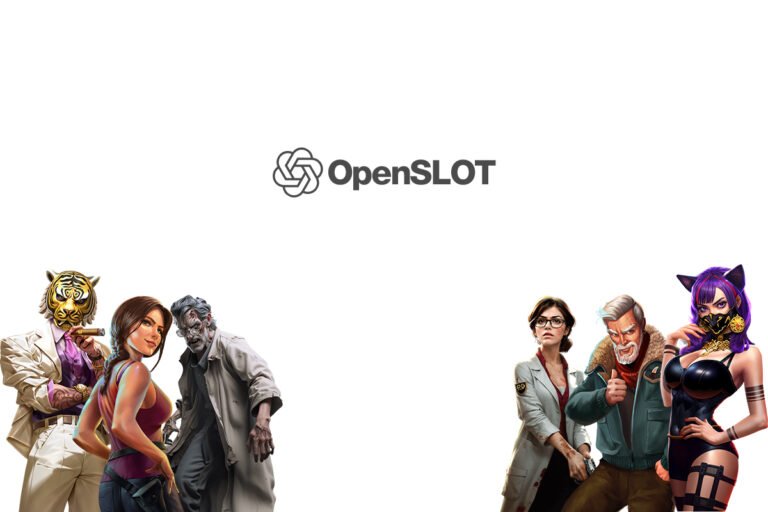슬롯사이트
슬롯사이트 는 온라인상에서 슬롯게임을 즐길 수 있도록 제공되는 플랫폼으로, 단순한 게임 서비스가 아닌 엔터테인먼트와 커뮤니티의 결합으로 진화하고 있습니다. 특히 2025년에는 고전적인 슬롯 게임 외에도 모바일 최적화 슬롯, 라이브 슬롯, 이벤트 기반 보상형 슬롯 등으로 다양하게 확장되고 있죠.
최근에는 무료슬롯 체험, 슬롯커뮤니티 참여, 실시간 랭킹 시스템 등이 유저들의 만족도를 높이며 트래픽 증가를 이끌고 있습니다. 단순한 슬롯플레이에서 경험 중심 슬롯 문화로 바뀌고 있다는 점이 핵심입니다.
슬롯사이트 2025년 트렌드 Top 3
모바일 퍼스트 최적화
슬롯 대부분이 HTML5 기반으로 제작되어 앱 없이 바로 플레이 가능
가로·세로 모드 전환 및 터치 UX 강화
슬롯커뮤니티 중심 확장
유저 간 게임 후기, 잭팟 인증, 꽁머니 공유 등이 활발
예시:
슬롯버프,슬롯타운,슬롯허브등
보상형 슬롯 이벤트 확대
PG소프트/프라그마틱 주최 대회
슬롯 랭킹 보상 시스템 도입
일일 무료슬롯 미션으로 활동 유지 유도

신뢰할 수 있는 슬롯사이트 고르는 법
슬롯사이트는 이용자 안전과 신뢰성이 가장 중요합니다.
다음 기준에 부합하는 사이트만 이용해야 합니다:
운영 기간 1년 이상 및 누적 이용자 수
24시간 고객센터 운영 여부
슬롯게임사와의 정식 제휴 확인
슬롯커뮤니티 내 유저 평판
슬롯커뮤니티 후기를 먼저 확인하고 시작하는 것이 슬롯사이트 선택의 가장 현명한 방법입니다. chervonaruta.info
슬롯사이트 내 인기 슬롯게임사 3곳 비교
🎰 PG소프트
특징: 모바일 퍼포먼스 최강, 고퀄리티 애니메이션
인기 게임:
럭키 네코 (Lucky Neko)
고양이의 행운으로 대박 기회! x10 배수 기능으로 폭발력 높은 슬롯트레져 오브 아즈텍 (Treasures of Aztec)
일명 ‘아즈텍 여신’ 슬롯으로 불리는 고배당 인기작와일드 바운티 쇼다운 (Wild Bounty Showdown)
와일드 중첩 기능과 연속 승리 시스템이 매력적인 서부 스타일 슬롯



🎰 프라그마틱 플레이 -슬롯사이트 인기게임사
특징: 고배당 + 이벤트 최적화, 다국적 유저 대상 글로벌 인기
→ 하이 베팅 유저를 위한 고변동성 구조와 매주 열리는 슬롯 이벤트로 커뮤니티 활동성과 수익성을 동시에 만족시킴인기 게임:
게이츠 오브 올림푸스 (Gates of Olympus)
제우스의 손짓 한 번에 터지는 x500 배수! 고배당 유저 최애 슬롯스위트 보난자 (Sweet Bonanza)
사탕 폭탄과 배수 연속 기능으로 달콤하게 터지는 중독성 슬롯빅 배스 보난자 (Big Bass Bonanza)
낚시꾼과 함께 잭팟을 낚는 테마형 보너스 슬롯의 정석



🎰 플레이앤고
특징: 스토리텔링 기반의 세계관 슬롯, 유럽 시장 강세
→ 캐릭터 중심의 세계관과 게임성 높은 구조로 슬롯의 몰입감과 테마성을 중시하는 유저에게 최적화인기 게임:
문 프린세스 (Moon Princess)
미소녀 연계 공격 시스템으로 연속 콤보의 쾌감을 선사하는 테마 슬롯북 오브 데드 (Book of Dead)
고대 유적 탐험 스토리와 높은 변동성으로 고수 유저에 최적화리액툰즈 (Reactoonz)
귀여운 외계 생명체들이 연쇄 반응하며 터지는 퍼즐형 슬롯 대표작



추천 커뮤니티|슬롯버프에서 무료슬롯 이벤트까지
슬롯버프는 슬롯 유저를 위한 커뮤니티 중심 플랫폼으로, 다음과 같은 강점이 있습니다:
PG소프트, 프라그마틱 공식 제휴 이벤트 운영
일주일 단위 무료슬롯 대회 개최
슬롯 랭킹제 도입으로 경쟁력 강화
슬롯추천 게시판 & 꽁머니 공유 커뮤니티 활성화
특히 PG소프트 무료슬롯 대회는 총 8주간 상금 1000만 원 규모로 진행되며, 실제 유저 랭킹이 실시간으로 반영되어 긴장감도 큽니다.
꽁머니와 슬롯사이트 활용 전략
대부분의 신규 슬롯사이트에서는 다음과 같은 프로모션을 제공합니다:
신규 가입 꽁머니 10,000원
매일 미션 달성 보너스
슬롯 랭킹에 따른 시상금
빅휠쿠폰, 프리 스핀 지급
단, 꽁머니는 대부분 출금 조건이 존재하므로 룰 확인은 필수입니다. 슬롯커뮤니티를 통해 실시간으로 이벤트 참여 전략을 공유받는 것도 좋은 방법입니다. 꽁머니사이트
슬롯사이트 초보자 가이드|처음이라면 꼭 읽어야 할 팁
RTP(환수율) 확인 후 게임 선택
자동 플레이보단 수동 클릭 추천
고배당만 노리는 베팅은 위험
초기엔 무료슬롯으로 연습이 기본
슬롯은 단순해 보이지만 게임 이해도와 패턴 분석이 중요한 장르입니다. 자주하는 유저일수록 데이터 기반 베팅 전략을 활용하죠.
마무리|슬롯사이트 이용 시 주의할 점
정식 라이선스 여부 확인
충전 수단의 안전성
이벤트성 과소비 주의
슬롯사이트는 정확한 정보와 안전한 커뮤니티를 기반으로 접근해야 장기적으로 안정적인 즐거움을 느낄 수 있습니다.
슬롯버프처럼 검증된 슬롯커뮤니티와 함께 시작하는 것이 보스의 길에 가장 적합합니다.
🎯 지금 슬롯버프에서 무료슬롯 랭킹전 참여해보세요!
PG소프트와 프라그마틱 공식 제휴 슬롯이벤트가 지금 진행 중입니다.
신규 유저라면 꽁머니 + 대회참가권 모두 가능!
👉 슬롯버프 바로가기